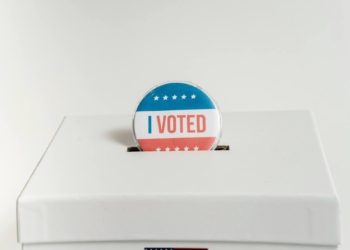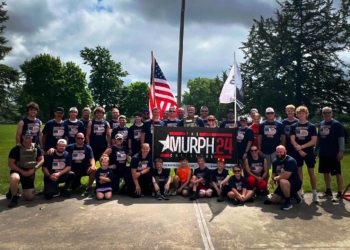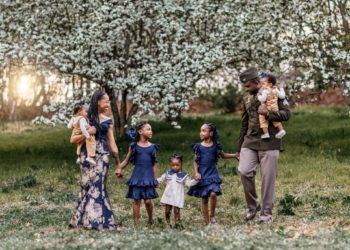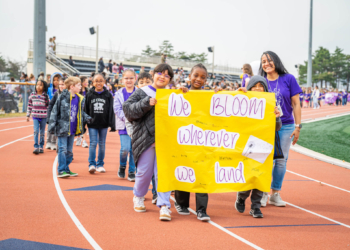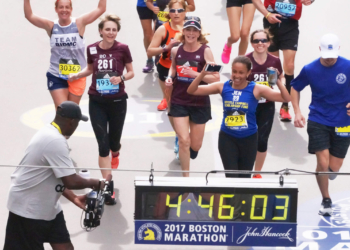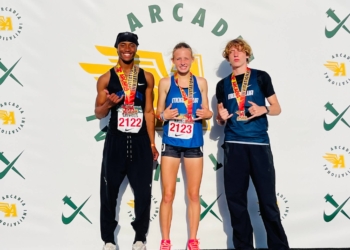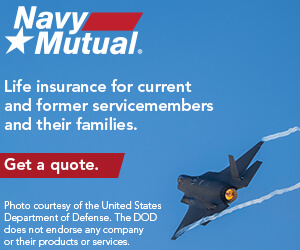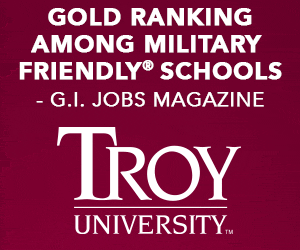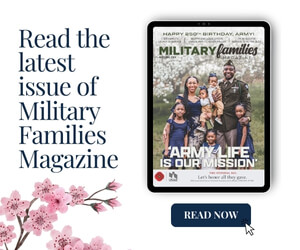Navy Cmdr. KC Hollon and his wife Maggie always knew adoption was meant for their family – they just never expected it would happen on an overseas tour in Japan.
An adoptee himself, KC knew early on it was a calling for him, and Maggie felt the same. After a painful miscarriage and three rounds of failed IVF, they began the adoption process, eager to start their family, and were overjoyed when a mother in Kansas chose them as parents for her upcoming birth.
They had guardianship of the baby girl for two days when the birth mother changed her mind.
“We both sat motionless in the hospital room crying, and I remember the nurses having to ask us to leave,” said Maggie. “It is the greatest loss of my life to date.”
The couple PCS’d to Japan the next month, still grieving.
“Something you rarely hear about in the adoption world is the journey through failed adoption. It is a huge risk, but we both agreed we would do it all over again,” said Maggie.
Moving onto base, the vast majority of their neighbors had children and it was a difficult adjustment.
“It hurt to go through the ‘Hi-nice-to-meet-you-how-many-years-have-you-been-married-how-many-kids-do-you-have-do-you-work’ introductions,” said Maggie, but an especially kind neighbor heard their story and introduced them to another Navy couple who had recently adopted overseas.
READ MORE: Military adoption reimbursement eases financial strain
Juggling carrier deployments and life in a new country, the couple were optimistic but also guarded their hearts after their recent loss. They met with a Japanese social worker who chose to take them on as clients, and flew out a stateside international adoption expert to help them through the notoriously slow-moving process, complicated further by KC’s intense deployment schedules.
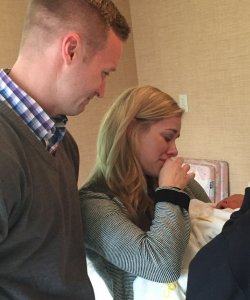
When a Japanese family chose the Hollons to be the parents of their daughter, the social worker was in close communication with KC, who was deployed on an aircraft carrier. From the boat, he coordinated with squadron spouses to assemble nursery furniture. When Maggie got the call that their daughter was born that day, it was a total surprise.
“Emi was born one year to date from our failed adoption,” said Maggie. “We are so glad we did not give up on starting our family.”
Eight months later, another surprise was in store. The doctor who delivered Emi knew of another birth mother looking for parents, and recommended the Hollons. With an upcoming PCS back to the U.S., the Hollons weren’t sure the adoption process could be finalized in time, but they both felt the baby was meant to complete their family – and said yes. This time, KC could not make it off the carrier for Miya’s birth or to take her home from the hospital, and friends stepped in to help.
Francheska Grogan and her husband, Lt. Ryan Grogan, felt a similar calling to adopt. With an older son of Ryan’s and two daughters together, the couple felt especially called to adopt a baby with Down Syndrome, a condition that often carries a significant stigma in Japan.
When their baby son Asher arrived into their family at 3 months old, he had three holes in his heart they weren’t aware of, leading to a quadruple bypass for open-heart surgery at 9 months old on Thanksgiving Day. Pre-Covid, the family underwent strict quarantine procedures to keep their baby safe; and friends and neighbors on base left meals in a cooler outside their home to help them through this terrifying time.
His body kept fighting off illness – with his heart issues and weak lungs, every cold became pneumonia and a trip to the intensive care unit. During the ups-and-downs of helping Asher through the illnesses that dominated the first few years of his life, the Grogans also got another call. Their social worker knew of another little boy with Down Syndrome. Would they be interested? Francheska and Ryan didn’t hesitate, and their son Wrigley came to them at 7 months old.
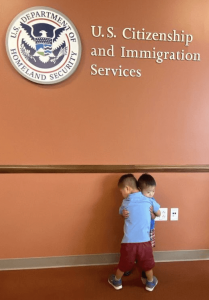
Once each of the children were home, parenthood began, but the adoption and immigration processes kept churning. The obstacles to adopting overseas are enormous – aside from differing cultural norms and languages – it’s navigating two complicated legal, family, and citizenship systems in two countries, and both families paid translators to assist. In Japan, until an adoption is final, you cannot leave the country, so both Maggie and Francheska were unable to bring their children home to meet extended family at first.
“I would always say it felt like we had to adopt twice with abiding with Japanese law, then American laws,” Francheska said of the arduous process.
The adoption also impacted the careers of both dads in order to stay in Japan to fulfill the Japanese adoption and U.S. immigration processes. The Hollons changed their orders to stay in Japan, but when the scheduled job in Yokosuka fell through, they scrambled to find anything else available there for him. A twist of fate helped when the commanding officer of a base in Okinawa ran into KC and helped find him a job there instead.
The Grogans endured much more uncertainty with finalizing their boys’ immigration. They were able to extend their orders in Japan for only one year, and then took orders in Hawaii so that Francheska could fly back frequently for the numerous immigration meetings. Each time, Ryan took positions that sidelined his naval career but enabled them to stay in place as long as possible to finalize their paperwork. When Asher’s heart condition meant he could no longer safely travel on the long flight, the couple faced the scary process of his potential deportation and obtained a new lawyer who ultimately helped them avoid that terrifying situation.
For the Hollons, adopting both children and obtaining their U.S. citizenship was a four-year process; for the Grogans, it took nearly seven years from the moment they began the process until the moment all the paperwork was finalized.
“I would do it all again in a heartbeat,” Francheska said. “These boys that have changed our lives forever. They have taught us how to love differently and open our hearts to see like they would.”
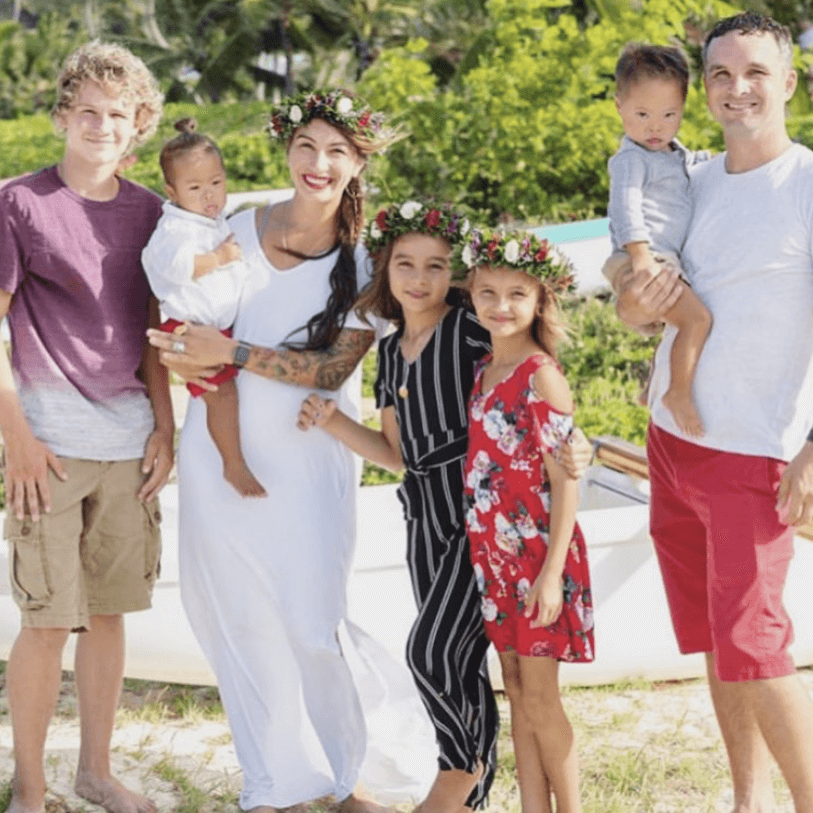
Military OneSource was an immense resource for both the Grogans and Hollons in navigating this complicated process; both wish they’d known about it sooner.
“I would want to tell other families that want to adopt to know this doesn’t happen overnight,” Francheska advised. Asher and Wrigley are healthy, happy pre-schoolers now, and Ryan is nearing his retirement. “It will take a lot of time and money, and be prepared for struggles.”
Maggie agreed.
If we have any wisdom from our experience it would relate to the emotions and reality of adoption,” she said. It’s a loss on one side and a celebration on the other. “Grief and hard topics come up – don’t shy away from them!”



















